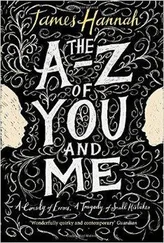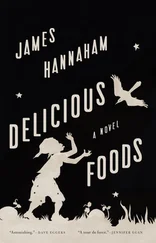James Hannah - Sign Languages
Здесь есть возможность читать онлайн «James Hannah - Sign Languages» весь текст электронной книги совершенно бесплатно (целиком полную версию без сокращений). В некоторых случаях можно слушать аудио, скачать через торрент в формате fb2 и присутствует краткое содержание. Год выпуска: 2015, Издательство: Dzanc Books, Жанр: Современная проза, на английском языке. Описание произведения, (предисловие) а так же отзывы посетителей доступны на портале библиотеки ЛибКат.
- Название:Sign Languages
- Автор:
- Издательство:Dzanc Books
- Жанр:
- Год:2015
- ISBN:нет данных
- Рейтинг книги:5 / 5. Голосов: 1
-
Избранное:Добавить в избранное
- Отзывы:
-
Ваша оценка:
- 100
- 1
- 2
- 3
- 4
- 5
Sign Languages: краткое содержание, описание и аннотация
Предлагаем к чтению аннотацию, описание, краткое содержание или предисловие (зависит от того, что написал сам автор книги «Sign Languages»). Если вы не нашли необходимую информацию о книге — напишите в комментариях, мы постараемся отыскать её.
Sign Languages — читать онлайн бесплатно полную книгу (весь текст) целиком
Ниже представлен текст книги, разбитый по страницам. Система сохранения места последней прочитанной страницы, позволяет с удобством читать онлайн бесплатно книгу «Sign Languages», без необходимости каждый раз заново искать на чём Вы остановились. Поставьте закладку, и сможете в любой момент перейти на страницу, на которой закончили чтение.
Интервал:
Закладка:
James Hannah
Sign Languages
INTERSTATE
Henry was exhausted. He had driven from Cincinnati through Kentucky and Tennessee, and now they passed to the west of Memphis. He rubbed his eyes with a knuckle and slowed the pickup. The interstate traffic mixed with crosstown drivers.
In the seat next to him his six-year-old daughter, Maggie, played one of her tapes full of high-pitched voices and irritating tunes she sang along with under her breath.
Just a few minutes ago, for the sixth or seventh time since they’d left home at sunrise, he had explained to her how they’d stay in a motel tonight and tomorrow they would arrive at his parents’ in Dallas.
“And you’ll leave me and the houseplants at Grandmommie’s, go down to Austin, rent us a nice place until next spring when you and Mommie can find one to buy, and fly back and bring Mommie and brother down in the new car. Then the whole family will come up to get me and the ferns, right?” She had beamed at him because she remembered it all.
Now he glanced at her face, long and narrow like her mother’s, and her eyes, which were the dark blue of very clear, deep water. The color often reminded him of a trip he and Martha had taken to the Bahamas years ago before the two children and all the other things that happen.
Earlier he and Maggie had sung songs. They had talked about the colors of cars and trucks, played “I Spy.” She had napped, eaten a lot. The floorboard was full of bottles and candy wrappers and McDonald’s bags. Henry worried she’d get sick and want her mother.
But she hadn’t gotten ill or even whined much, and Henry had thanked God a dozen times already. He’d never been on a trip alone with her where she didn’t have at least her brother to fight with and talk to. He considered the fact that he didn’t know her very well.
All he wanted was for her not to make any trouble. To be still and quiet, to nap when she needed to, and to keep well covered with the old soft quilt they’d brought. The blast of cold from the air-conditioner was all that kept him awake now.
He needed to try to think about everything. But he knew the driving was becoming dangerously easy and automatic. He had no reflexes left. They sped on at seventy-five. His exhausted mind was a tangle of projections about the future mixed with the past that would be Cincinnati soon. He knew how fearful he could be and so had that to combat. And now a lane change or a swerve to avoid a jolting hole in the concrete muddled it all.
He had spent three weeks at the Austin office in February. And Janet had come to his hotel room for dinner. They had eaten awful Mexican food and drunk good margaritas and talked about nothing much and that was all there was to it.
But since then he’d known that would not always be all unless he said it would. He had never before been interested in anyone else, but now he knew he was because despite all the worry about Maggie, about the move, and his insecurity and Martha’s loss of a good job, he tried not to think about the innocuous dinner. About how anything more would change everything at home.
His eyes, even behind the prescription shades, felt needled from the thick summer haze complicated by the dusty harvesting of fields of winter wheat. And, in places, the remaining fields of stubble were burning in black and orange rows. It was all desolation. He thought of his father who, as a young man, had walked out of Burma with “Vinegar Joe” Stilwell. “Desolation,” his father’d say, a man with almost no words for anybody.
Henry recalled a book about Stilwell he’d checked out of the library when he first entered college. Now he tried to remember the photographs of the chaos of escape. Smoldering villages; looting; huddled, frightened people. Bodies against the flimsy walls of huts. Stilwell was in most of the photographs, teeth clenched around his pipe. And behind him a line of emaciated men in tattered uniforms. Any one of them could have been his father; he couldn’t tell, though he had bent close, angling the glossy paper away from the light. They were hurrying through that countryside toward India.
The farmers had already burned everything here as far as he could see. He put the back of his hand to the windshield, and the June heat leached through. The setting sun was in his eyes now. He adjusted the visor, but he could see only the car immediately in front of him. He shifted his weight and noticed Maggie had fallen asleep again. Reaching over, he covered her, raked some cookie crumbs to the floor, and switched off the tape player.
He left the pickup running at a roadside park while he tried to defecate. When he returned, Maggie was still asleep. He thought he shouldn’t have left her. And he recalled how once, with David, he’d gone into a 7-Eleven and locked him in the car with the keys. He’d had to pretend calm and point with a steady finger at the door latch and motion for him to pull it up. But he’d laughed a toothless grin, and finally Henry had had to call the police.
At five-thirty he tried to listen to the NPR news on the radio. Something tremendous had happened somewhere far away. He kept adjusting the dial, but they were not close enough to Little Rock for a clear, strong signal.
Instead they listened to music from quickly fading local stations and played a game she thought of. Actually only she played; he refereed. She’d listen to a few lines and tell him if it was a happy song or a sad one. He was surprised at how good she did, though when there was only music she had more difficulty.
“I’m really tired.”
“I’ll bet you are,” she nodded.
Henry heard Martha in her intonation. “I really am,” he said and was embarrassed at trying to convince Maggie he was telling the truth.
“I’ll bet so.”
“Are you okay? Tired too?” He thought her mother read to her every night and sometimes rocked her to sleep. He also knew Maggie often slept with her brother and wondered if they should get one bed or two that evening. He was afraid she would miss her mother and wouldn’t be able to get to sleep in a strange room.
“Yep, me too.”
“And remember, tomorrow you’ll be at Grandmommie’s house. That’s something to think about, isn’t it?” He watched her smile and nod vigorously, and he was relieved.
Just at sunset, on the other side of Little Rock, they pulled into the Mid-Arkansan Inn. Their room was on the second level a distance from the stairs. Pulling back the curtains, he could barely see the top of the pickup and, across the vast and empty parking lot, Chuck’s Best Steak House. The woman at the desk had given him two ten-percent-off coupons for dinner and the breakfast buffet. Though it was after eight, the place looked closed.
Henry had dragged up their two suitcases and now lay on the bed farthest from the window, his eyes closed to the standard decor of a room under fifty dollars. Maybe I won’t do this thing with Janet, he thought. Then he considered managing an entire branch office. There’d be travel all over the southwest region. And though he was sure he appeared confident to others in the business, he knew exactly how deep all that went. He had always had to work harder, longer hours just to keep up.
He listened to Maggie unpack her suitcase and arrange her bed. She sang under her breath. Once she whispered to her dolls and whistled a single clear note of surprise. He opened his eyes and turned on his side; his back was a complication of aches and dull dead spots he massaged with cramped fingers. He felt the sway of the pickup.
“Well, I’ll fill the ice bucket,” Maggie said as she tore off the plastic wrap.
“I don’t think we need it, you know. Nothing to drink. We’ll go over and eat in a few minutes, okay?” And Henry lay back. He and Martha had both wanted David, and David had outdistanced his attention. By the time this blue-eyed child had appeared, he had turned back to work for many reasons. It had been like college, where he learned he had to study hard without the interruption of companions. Maggie had come as Martha’s child and joined up with David. He figured it was just the way things work and thought it might have been different if they’d both been boys.
Читать дальшеИнтервал:
Закладка:
Похожие книги на «Sign Languages»
Представляем Вашему вниманию похожие книги на «Sign Languages» списком для выбора. Мы отобрали схожую по названию и смыслу литературу в надежде предоставить читателям больше вариантов отыскать новые, интересные, ещё непрочитанные произведения.
Обсуждение, отзывы о книге «Sign Languages» и просто собственные мнения читателей. Оставьте ваши комментарии, напишите, что Вы думаете о произведении, его смысле или главных героях. Укажите что конкретно понравилось, а что нет, и почему Вы так считаете.












